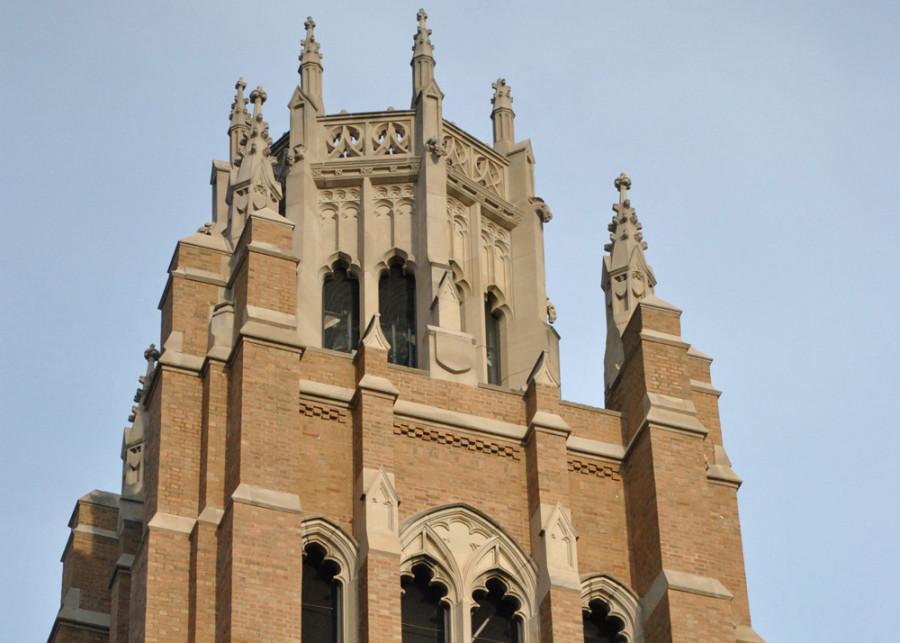Marquette University’s academic year of 2014 to 2015 brought forth many tribulations for the university, which resulted in widespread attention.
The chain of events continued as the leaders of Marquette stepped up and responded to the occurrences in manners true to the university.
To recap the fall semester of 2014, political science professor John McAdams shared a blog post publicly criticizing a teaching assistant because she refused to discuss same-sex marriage with a student. The university responded by suspending McAdams and stripping him of tenure.
While it seemed like a well-thought decision with the intention of protecting the graduate student, the event sparked divided and national response as to whether Marquette’s decision was fair to McAdams or whether it disregarded his academic freedom and right of free speech.
During the second semester, Marquette’s Mu Beta chapter of the Alpha Kappa Alpha sorority painted a mural of Assata Shakur in the Gender and Sexuality Research Center, an act approved by the GSRC’s former director, Susannah Bartlow.
Unbeknownst at the time of approval, Shakur is on the FBI’s most wanted list, causing McAdams to blog again condemning the GSRC for “glorifying a black militant cop killer.”
Within two weeks, the mural was removed and Marquette explained their reasoning: “it did not reflect the guiding values of MU.” In addition, the university publicly reported that Bartlow “is no longer an employee at Marquette University.”
The process was deemed thoughtful, despite the 440 signatures from faculty and students alike who petitioned to maintain Bartlow’s position.
Once more, the removal of the mural and Bartlow’s exit created national attention during which Marquette had to react in a way authentic to what the university stands for.
The fashioned decisions illustrate Marquette’s respectable character, but raises the question: were the choices right or were they done with the purpose of accommodating those critical to the university?
In any conflict or incident, it is natural to want to survey what has happened and come up with immediate fixes for the purpose of convenience and easing discomfort. Furthermore, public scrutiny only causes those who are in the arena battling to maintain their credibility to believe immediate resolution is necessary.
Unfortunately, there is no way to avoid the critics or the scrutiny, especially given this day and age of the participatory Internet, in which people pick and choose what to criticize on their frequented social media and then move on to something else the following day.
A critic will become bored and move on, but the words said of the critiqued—in this case Marquette— will resonate for days, months and even years. The good thing is there are countless leaders who take time to discern between which decisions are right for the university and which are easy.
Looking ahead to the academic year of 2015, the leaders of Marquette University will inevitably face controversial issues, some of which will be under the public eye.
It is crucial that the university continues to revisit its guiding values and decide whether the conflict at hand reflects them or not. In the same way, deep discernment will be required so to conclude whether the resolve reflects Marquette’s guiding values.
The university has stated the necessity of debate and intense discussion. In some cases it would be beneficial to open up discussion to the student body. This is a university fostering the development of its students, after all.
While students cannot be the ultimate determiners, their thoughts should be taken into consideration before conclusions are swayed by national dialogue.
Marquette University will again find itself at the point of no return, in which a conflict has occurred and there is no going back, but the end is not quite in sight.
In this state of limbo, it will be important for Marquette to allow itself to be seen despite vulnerability, to be courageous among the critics, and to consider all members of this community when making decisions, including faculty and students alike.




Walter-marie Miller • Sep 4, 2015 at 11:39 pm
No mention of F.I.R.E’s “red light rating” of Marquette? Seems strange to decline any reference to a very public black mark upon Marquette’s reputation.
No mention that a layperson for the first time ever became Marquette president. Then, in his first year, the university’s name and reputation were good n sullied?
The fiasco at Marquette has shaped the free speech debate in America. Marquette is truly at the forefront. And the national spotlight is going to shine again at the disposition for Dr. McAdams, likely with a media presence that never before seen at the campus, at the very least since the 04 debate. Students need to embrace their rôle as free speech mavens, but I hope that they are on the side of unimpeded speech rather than the ridiculous academofascism espoused by the entrenched white wine leftist faculty.